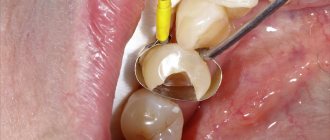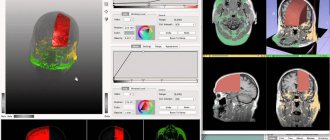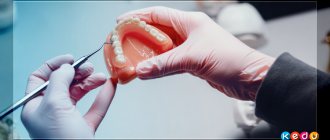Dentist-therapist and dentist: the difference
Everyone knows the difference between a nurse and a doctor. The difference between a dental therapist and a dentist is approximately the same. The first is a certified specialist who studied at the university and completed an internship, which makes him in demand in the modern world. By law, a dentist has the right, depending on his specialization, to deal with any problems in the oral cavity. The list of its services includes procedures of any complexity.
A specialist such as a dentist studied for only three years and received a certificate of completion of secondary education. The range of services they provide is not as wide as that of a dentist. This is precisely the main difference between the two specializations.
Pediatric dentist
What is the difference between a dentist and a pediatric dentist? The structure of a child’s oral cavity, like the whole body, has its own characteristics, therefore the teeth of young patients should be treated directly by a pediatric dentist.
Many people believe that baby teeth will fall out on their own and there is no need to fill them, and if they start to deteriorate, then they just need to be removed. In fact, the future health of the child depends on their condition, and if diseased teeth are destroyed without a second thought, then their original followers will also be susceptible to caries and will grow crooked.
Treatment of children's teeth requires special tools and materials, special equipment and methods of pain relief - all this must be known to the pediatric dentist. To this we must add that correcting malocclusion is also part of his responsibilities. He is required to have knowledge of child psychology, the ability to handle a child during treatment, charm, restraint, and goodwill. A professional working with children should have these qualities so that the child can overcome fear and, without falling into hysterics, allow him to do his job efficiently and well. And what memories a child will have from visiting the dental office will determine how he will subsequently relate to visits there throughout his life. This is the difference between a dentist and a dentist in a children's clinic.
This is interesting: Blisters and bubbles on the tongue in adults and children: at the root closer to the throat, red, white
Dentist services
A dentist can work in a medical institution and do the following simple manipulations:
- assess the condition of the oral cavity;
- treat certain gum diseases;
- treat caries, but only at unadvanced stages;
- carry out tooth extraction if there are no complications;
- provide a service such as cleaning enamel from stone;
- install temporary or permanent fillings, but only in small areas;
- take impressions of the dentition to transfer them to the technician.
If a dentist encounters a problem in the oral cavity that he cannot solve, he is required by law to refer the patient to a dentist with a higher education.
What is the difference between these concepts?
The difference between a dentist and a dentist is the level of training and the type of treatment they can perform.
The list of works provided for in the job description of a dentist includes:
- A dentist is a general specialist
diagnostics;
- treatment of relatively simple diseases of teeth and gums - gingivitis, stomatitis, caries and some others;
- removal of teeth not complicated by periodontitis;
- treatment of simple maxillofacial injuries.
- carrying out physical procedures;
- consultation regarding the choice of oral hygiene products;
- cleaning teeth from plaque and tartar, and some others.
In case of more serious dental pathologies - malocclusion, pulpitis, periodontitis, periodontal disease, lesions that have caused tooth destruction by more than 50%, and in other cases requiring the participation of a more trained specialist, the dentist gives the patient a referral to a dentist of the appropriate specialization.
A dentist is a general specialist. He has theoretical knowledge and practical skills sufficient to perform therapeutic, orthodontic, orthopedic and surgical operations.
Although, like a dentist, when faced with a particularly difficult case, he can refer the patient to a doctor of a narrow specialization.
Other dental specializations
Don’t think that if you walk into an office with a “dentist” sign, he will solve all your problems. The list of diseases is wide, so no one, even the smartest doctor, can treat everything.
Dentists are divided into the following specialists:
- Therapist. People come to him with general problems.
- An orthopedist who places dentures.
- Orthodontist – helps with malocclusion.
- Surgeon - performs surgical interventions.
- Periodontist – treats gum inflammation.
- Pediatric dentist – treats children under 17 years of age.
Pediatric dentist
As far as we know, children do not have as many teeth as adults. Yes, and people over 14 years old do not have primary incisors, canines and molars. Due to the significant differences between the temporary and permanent series, patients under 17 years of age are treated and examined by a pediatric dentist. This is one of the most difficult specialties in dentistry.
The doctor must not only perfectly know all the features of changes in the teeth of young patients, but also be a good psychologist, because it is not at all easy to work with children. You need to calm, cheer and encourage the baby and only then start working directly.
The dentist does not examine children, although it seems that there are many fewer orthodontic problems under 17 years of age, which means that it will be easier to treat them. A pediatric dentist differs from a dentist in that his specialization is more responsible. There is a huge difference in the structure of the teeth of children and adults, and only a certified doctor can correctly cope with the task assigned to him.
Dental surgeon: when radical measures are needed
As you know, surgery involves surgical interventions. This is what a surgeon does in a dental clinic. People come to him if other doctors can no longer help the patient.
The surgeon will once and for all relieve you of many problems that arise in the oral cavity. This complex specialty requires a lot of attention, a lot of practice and honed skills. A specialist is consulted for a number of problems:
trimming the frenulum of the tongue and upper lip;- tooth extraction - partial or complete;
- diagnosis of syphilis, tuberculosis in the oral cavity;
- treatment of tumors;
- treatment of trigeminal nerve diseases;
- plastic surgery of jaw deformities, restoration of proportions;
- gum surgery;
- treatment of periodontal disease;
- installation of special implants.
The patient rarely comes to the surgeon himself; more often he is referred by other dentists. Treatment is often carried out by several doctors at once , usually a periodontist and a therapist. After all, before and after surgery, you need to properly manage the patient.
Without a periodontist - nowhere
To understand what this specialist does, you need to understand what periodontitis is. Periodontium is the soft tissue around the teeth, or, more simply, the gums. Teeth and gums are one system. There cannot be healthy incisors, canines, molars and diseased gums, or vice versa.
The periodontist treats:
- gingivitis;
- stomatitis;
- periodontitis;
- periodontal disease.
Most often, periodontal diseases occur due to infection between hard tissues (teeth) and soft tissues (gums).
How gum and dental diseases develop
The importance of a prosthodontist
This doctor is also called a prosthetist, because the essence of his specialty is prosthetics for the patient’s teeth. People go to him only after a full examination by a dentist-therapist, since he will be able to work with dentures and do his job only when sanitation has already been carried out - otherwise the risk of inflammation is too high.
Today, orthopedists are the most sought-after specialists. They install crowns, pins, bridges, and all kinds of implants. It is rare to find a person over thirty years of age who has never consulted this doctor.
Dentist-therapist – the broadest specialty
The therapist deals with general problems:
- treatment of caries, periodontitis, pulpitis;
- patient consultations;
- disease prevention;
- preparing the mouth before prosthetics.
It is this specialist who is always in line to get checked out. An appointment with a dentist is somewhat similar to an appointment with a dentist, but there is a difference: the second doctor does not treat or examine pulpitis, periodontitis and other infectious and inflammatory diseases.
The therapist has the right not only to the initial consultation, but also to the treatment of patients. A dentist also differs from a dental therapist in that he cannot advise patients according to their disease; his duty is to refer them to other specialists.
The orthodontist will correct nature
This doctor specializes in correcting malocclusion using braces, plates, or mouth guards. Due to improper placement, teeth can wear out, crumble, making it much more difficult for a person to carry out hygiene measures and chew food.
With the help of an orthodontist, congenital or hereditary anomalies are corrected that interfere with a full life, for example, a gap between the front incisors, irregular shape, location and many others. In the modern world, the aesthetic side is not the least important - we can say that the orthodontist makes a “beautiful smile.” It is worth remembering that treatment with this doctor may take more than one year.
Dentist
The specialist spent 5 years gaining knowledge at a medical institute, after 2 years he studied in residency or worked as an intern for a year. In addition to the structure of the dental system, the dentist studied physiology, anatomy, and the interaction of various organs. Biochemistry, psychology, therapy, histology, bacteriology and a dozen other subjects were on the class schedule.
After graduating from medical university, a general dentist chooses one (or several) specializations. Pediatric dentistry differs significantly from orthopedic and orthodontic treatment. A dental therapist has broader powers than a dentist, and a dental surgeon can not only administer anesthesia and remove teeth, but also perform operations on the gums and jaw bones.
Do you know who a dentist is? This is what a dentist is called in other countries. In Europe, the USA, and other Western countries, a specialist with a secondary medical education performs the same functions as a dentist in Russia.
conclusions
There are a lot of specialists in dentistry, and the activities of each of them are different. It is important to remember that you can avoid serious oral health problems and trips to dental clinics if you follow the basic rules:
- brush your teeth twice a day;
- visit the dentist once a year, even if there is no reason for this;
- Do not delay your visit if your gums become sensitive or inflamed.
By following these conditions, you will protect yourself from problems in the future. Do not be afraid of doctors; many diseases begin completely asymptomatically, and only a specialist will be able to identify the threat in time.
Dental surgeon
What is the difference between a dentist and a dental surgeon? If a tooth is completely destroyed and there is no way to restore it, it’s time to contact a dental surgeon. He will remove the breeding ground for infection in the mouth and give recommendations on what needs to be done to make the wound heal faster. He can even pull out a healthy tooth that is growing incorrectly and interfering with its neighbors. Surgeons can not only prepare the oral cavity for implantation, they themselves can implant the implant, and also perform surgery in case of injury to the jaw or its joint.
An ordinary dentist cannot perform these manipulations. His qualifications and knowledge do not give him the opportunity to perform such complex operations.
Orthopedic dentist
Having figured out who an orthodontist is, you can now find out what is the difference between another excellent specialist - an orthopedic dentist. Firstly, it should be noted that this is currently one of the most in-demand specialties in dental medicine. And this is no coincidence, because an orthopedic dentist deals with oral prosthetics.
When a patient loses teeth, he has to experience great discomfort, both aesthetically and physically. He can’t help but smile widely and chew his food well. All this is fraught with disorders of the digestive system. An orthopedic dentist helps him regain his former confidence.
There are quite a lot of prosthetic methods in recent years. Dentures can be installed either removable or permanent. There are also conditionally removable ones. Such prostheses include, for example, various crowns, pins and other structures.
Consult a dentist in Orenburg. How to choose a qualified doctor?
Considering the trends in modern dentistry, where there is a clear focus on maximum specialization, there is an urgent need to improve the qualifications of dentists who do not have the full knowledge that modern patients need. Therefore, to receive comprehensive professional dental care, it is recommended to contact only certified dentists - they will be able to treat you with acute toothache, and will carry out all the necessary procedures to treat pathologies of any complexity.
Dentist-implantologist
Such a specialist is involved in treatment planning when there is a need for prosthetics.
If at the start of treatment some teeth are missing, then two tactics are considered.
- Tighten the spaces between teeth so that adjacent teeth replace the missing one. This is possible if, for example, the second molar (seven) was removed, but the third (eight, wisdom tooth) erupted. Functionally, these teeth differ little, so it is justified to move the figure eight to the place of the lost 7th tooth. But if we are talking about other teeth, then this treatment method can lead to asymmetry and an aesthetically unattractive result.
- Prepare the site for subsequent prosthetics. To do this, the teeth are not tightened, but rather, the space between them is expanded. During treatment with an orthodontist, you will have to spend some time with a noticeable gap in the row of teeth, and then contact an implantologist. This is a longer method of treatment, but the result is worth it: all the roots of the teeth will be in place, and an implant will be installed to replace the lost tooth.
This is what preparation for implantation looks like: with the help of braces, a place for the implant is prepared.
Sometimes the implantologist himself refers patients to the orthodontist. This happens if a patient applies for implantation, not knowing that malocclusion is an obstacle to prosthetics. In this case, the correct order of treatment is as follows: first correct the bite with orthodontic treatment, and only then install implants.
Dentist-orthodontist
What does an orthodontist do? This is actually interesting to know. After all, anyone who has not had the opportunity to contact this specialist at least once is unlikely to be able to quickly answer this question. So who is he, an orthodontist? What dental diseases and problems does he deal with?
And he is engaged in putting things in order in the violation of the structure of the jaw, that is, he corrects incorrectly growing teeth if for some reason they suddenly began to grow crookedly, and cause both psychological and physical suffering to the patient.
He can reduce the distance between the teeth or install braces - structures for straightening teeth, especially popular in recent years. This gentle method does not cause injury to tissues, although it requires patience and endurance when wearing the structure.
Specialty dentist
The main distinguishing feature between a dentist and a dentist is his level of training, experience and skills (degree and quality of education). During their training, dentists study pathologies of the entire body. The basic course includes a wide range of subjects, similar to other medical specialties - this allows the specialist to form a complete picture and understand the mechanism of interaction of all organs and systems in the human body.
After a graduate of a medical university receives a diploma as a dentist, he must decide on his main specialization:
- Therapist – treats various pathologies of the teeth and oral cavity, including: treatment of acute problems, teeth whitening using various methods, filling (mild, moderate and severe destruction), as well as a number of preventive procedures;
- Orthodontist - specializes in the treatment of anatomical problems of the oral cavity, by correcting various anomalies and pathologies of the bite: installing braces, plates, eliminating spaces between teeth, etc.;
- Surgeon - specializes in performing surgical procedures (related to the removal of diseased teeth that are not amenable to effective therapeutic treatment), prosthetics, dentition correction and removal of healthy teeth that interfere with the normal anatomical arrangement of other teeth;
- Pediatric dentist – specializes in treating a range of oral pathologies in children and adolescents.
Precisely because doctors have different specializations, reviews of dentists almost always refer to one direction or another, for example, after treating a child, they leave a review about a pediatric dentist, and after ultrasonic teeth cleaning, they leave a review about a dental therapist.











